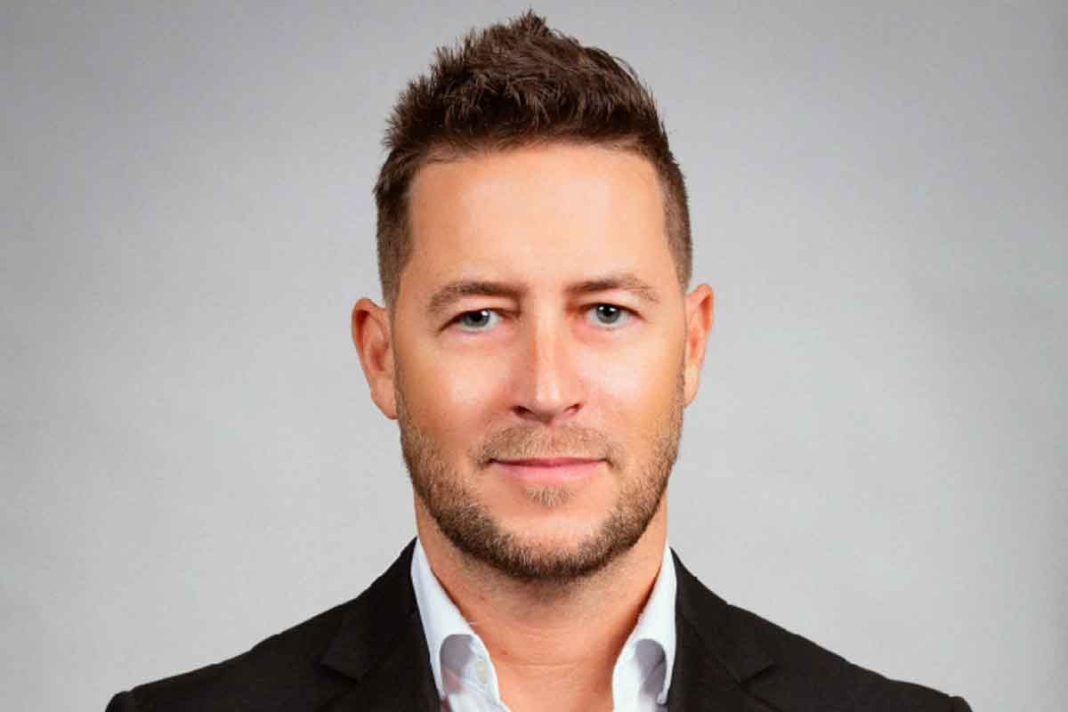Ask most events industry clients what they want from their suppliers and the words ‘sustainability’ and ‘innovation’ often appear high on the list of priorities. They are two qualities that are becoming increasingly valued, and organisations are placing more and more emphasis on ensuring that both are being delivered at every possible touchpoint.
One person leading the charge in both fields is Jason English, CEO at Al Laith and Chief Ecosystem Officer of the wider CG Tech Group. Alongside his more than 20 years of senior management experience, English is one of the handful of South African-born leaders to be selected as part of the Peter Diamandis mastermind of 250 exponential entrepreneurs, serving on the EXCO of the Young Presidents Organisation.
“There’s more than enough data to show the impact that we’re having on the planet collectively,” English began, explaining the importance he places on sustainability. “It starts with wanting to make a difference as individuals and then it transfers to how we act as companies, and there’s a whole industry and an ecosystem that develops around that.”
While there’s no doubt of the desire for change, according to English, there are several factors that are hindering the general pace of change throughout the industry. “We think about sustainability, and we talk about sustainability all the time, but giving effect to sustainability is a much more difficult task than talking about it. Ultimately, sustainability has a cost impact and that influences people’s ability to affect change,” he explained. “Clients want to see innovation, but they want it at the same price, which creates its own challenges. That means we as organisations must get smart in terms of how we manage our costs and create that added value.”
One form of innovation that offers a potentially hugely powerful solution when it comes to increasing sustainability is artificial intelligence (AI). “AI is the hot topic right now internally, and that extends to our clients, our supply chain and, I’m sure, our competitors,” English commented. “Everybody is talking about AI, but the key to getting the most out of it is establishing how we use AI effectively so it’s not just a cool thing to have, but something that adds genuine value.”
With a background in mechanical engineering, English describes himself as “a gadget freak”, and it’s this penchant for technology that has led him to pioneer a range of innovative initiatives across the entire GC Tech Group. “My love for the software part of technology really developed around 2014, when I needed to try and scale training of an organisation that was growing at tremendous speed, and there was no way to do that without bringing in digital,” he recalled.
By 2016, inspired by his participation in the Abundance360 programme by Peter Diamandis, English fast-tracked the deployment of technology within the group of companies. “We decided to create our own technology laboratory,” he revealed. “We assembled a group of software engineers and gave them the mandate of trying to disrupt our own business by using technology. It became a very much a MAFO – Mess Around and Find Out – experiment, where we played with everything from virtual reality to drones.”
With the full-hearted backing and participation of English, the rollout of technology throughout CG Tech has become so ingrained in the group that it now forms a key aspect of the company culture. “Technology is central to every conversation within the group,” he stated. “We have an AI champion in every organisation who is mandated to manage the rollout of AI, and we have weekly tech talks where we take the teams through the deployment of AI and how to use it effectively to achieve our goals.”
‘We could be on to something big’
From a sustainability standpoint, English explained how AI can be harnessed in several valuable ways. “AI can be incredibly useful from an environmental monitoring perspective, for energy consumption analysis and helping us to understand how we use energy internally and what improvements could be made.”
There is also a catalogue of other uses for AI technology that will undoubtedly contribute to greater sustainability. “I believe that it is going to be a consistent development rather than a ‘eureka’ moment,” English stated. “Predictive analytics is something that can help us streamline everything from how we utilise and maintain our materials and equipment to the strategic deployment of people.
“AI will also play a major role in safety management in terms of how we can identify potential hazards through video technology,” English added. “We’re already playing a lot with that in the oil and gas industry, so I suspect that this will naturally enter the events industry.”
On the design and engineering side, English believes that we will see generative AI design capability in event structures within the next decade, while supply chain optimisation and inventory management is another area of huge potential use for the technology. “Being able to optimise stock takes and availability of material will be huge in terms of managing our supply chains and increasing efficiency.”
English is also heavily focused on the training and development applications for AI, being aware of the huge benefit it could offer in terms of increasing access to training. “If we can train an AI to be able to deliver the kind of professional development that usually takes time away from senior members of the team then we could be onto something big,” he shared. “We’re making major moves in that direction already.”
Not all sustainability has to be powered by futuristic technology; some come as a result of good old-fashioned ethical practices. “Sustainability has been going on naturally within Al Laith for a very long time,” English commented. “Most of the materials are reusable and the majority are dismantled after each event and used again and again on future projects.”
Of course, there’s only so far that basic sustainable practices can take us, and English is a big believer in the power of innovation when it comes to futureproofing the organisation and doing the best thing for the planet in the long term. “We’re looking at multiple initiatives across the board, from replacing plywood with recyclable products to eradicating single-use plastics from our facilities through a partnership with No More Bottles to the widespread use of solar and hydrogen power – to the point that we have even started a renewable energy company under the CG Tech Group called Serious Energy,” he revealed.
“With all these initiatives, the initial impact that you make on a global scale is always questionable, but if everybody around the world did their small part, maybe there would be a significant outcome,” English concluded. “I would like to think that we’re at the forefront of leading the change across our industries.”
Photos: CG Tech





